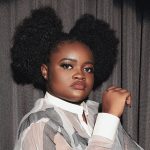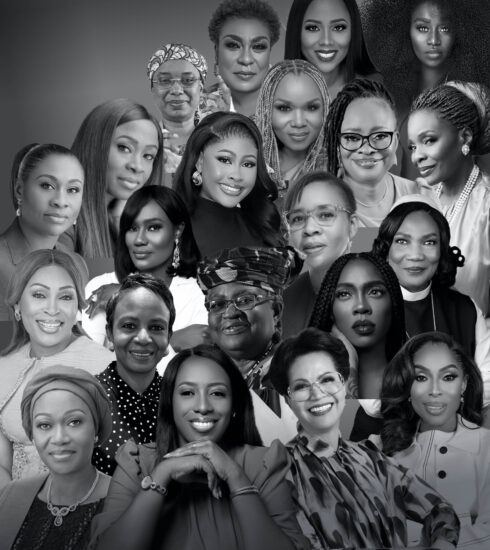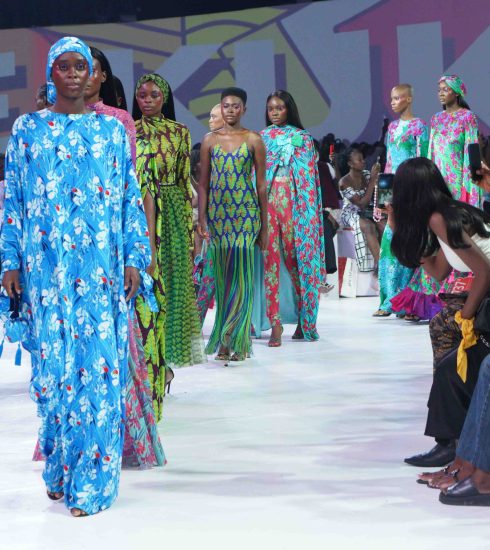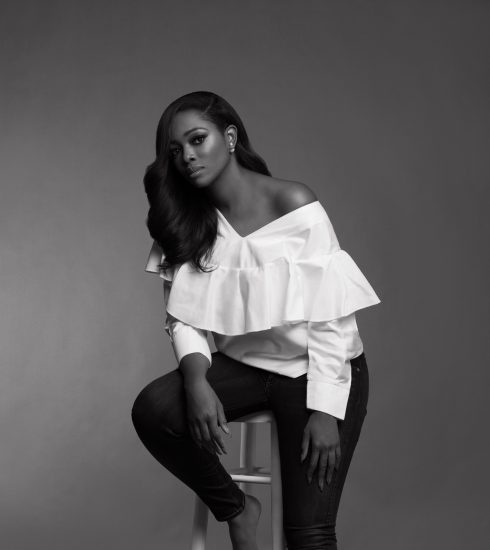Ayo Animashaun: The Man Behind The Music Powerhouse
Driving at the Hip TV office on possibly their busiest week in the year, I visibly notice the hustle and bustle as staff and non-staff pace around trying to get things in place for The Headies Awards Show.
Mr. Animashaun is in his third meeting for the day and he’s far from finished. We meet briefly and exchange pleasantries as he urges me to be patient while he rounds up his current engagement. While waiting, I see an influx of hot new artistes like Bad Boy Timz and Alpha P to mention a few and their presence is just another day in the office for most. It was all just a subtle reminder that Ayo Animashaun runs a powerhouse.
Arguably a pioneer of the music award shows in Nigeria, Ayo Animashaun is an entertainment entrepreneur and television executive, the brains behind Hip Tv and The Headies as well as CEO of Smooth Promotions. Many might not know this but Mr. Animashaun is a core family man and regardless of his various obligations, always puts family first.
After an 18 hour wait that housed a couple of false starts and a carryover into the next day, Downtown’s Chisom Njoku (special thanks to Oye Akideinde) finally caught up with him for a conversation on reflection, appreciation [of the journey so far], and exchange of thoughts on Nigeria’s music and entertainment industry.
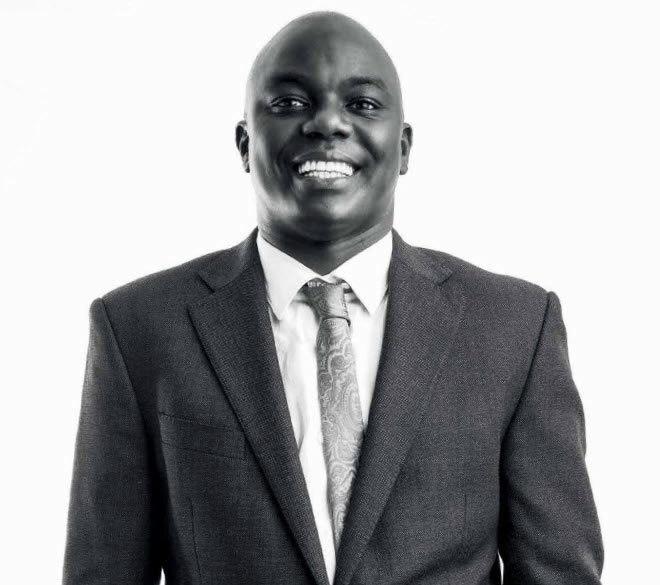
Ayo Anumashaun
Give us some insight into who Ayo Animashaun is?
I’m a media entrepreneur. I started my media career with my first project – a songbook [booklet with song lyrics] when I was 19 and everything took off from there.
Where did you grow up?
I was born in Ilorin, Kwara State. I spent my first
17 years there before moving to Kaduna to study Business Administration and Management at Kaduna Polytechnic. From there I moved to Katsina to serve and finally arrived in Lagos to start Hip Hop World Magazine in 1994.
What was it like growing up there [Ilorin] as a youth who was fascinated by music and pop culture?
I grew up listening to largely foreign music apart from the music my dad would play like King Sunny Ade, Fela Kuti, etc. When I entered my teenage years, I developed my own musical interests in RnB, pop, and hip hop and spent a lot of time listening at a record store not far
from my home. The music they played there shaped my taste and interest.
It’s not always about where you grow up, it’s about who you meet, who you are, and what influences you.
Some of your earliest work was the Hip Hop World page in Fame Magazine, how did it feel driving the music culture in a pre-social media era?
I went to Fame Magazine because I wanted to publish Hip Hop World Magazine not because I wanted to write for Fame Magazine but then I thought I could do a better job with those pages so I requested and got my opportunity.
It was a different time then and I looked forward to my articles being published every week.
As a music lover, you went on to turn the Hip Hop World page into a music magazine but the question is how did that passion translate into a sustainable business?
I didn’t think this was going to be my bread and butter, as it was just an interest I developed when I was a boy. When I started writing
the songbooks, it was just for my pleasure. I realized I could hear almost everything the artistes were saying clearly so I started
putting it on paper and I would spend hours writing. I would compile and photocopy
this makeshift songbook and sell them like handouts. There was this progression at every stage and I was just doing it and having fun
but everything changed when I decided to stay on my own because I had to provide food and transportation for myself.
I wasn’t born poor, in fact, the street I lived in Ilorin was named after my dad but he died and though we were still good, it wasn’t business
as usual. I chose the hardship I put on myself because I wanted to step out and do something.
What was the inspiration behind The Headies Awards?
Many years before The Headies, we toyed with the concept of running a music award show
for Africa. The Headies started when Hip Hop World Magazine hit the ten year mark and we wondered what next. I had been fortunate to travel and see the beauty of different award shows around the world. I believed we could do this in Nigeria and set standards, but we didn’t have a dime, however one or two clients saw
the vision and passion I had and that’s how it all began.
What has been the most difficult part of hosting the yearly award show and at any point in time, did you consider calling it quits?
Yes, the 2015 Headies with the Olamide and Don Jazzy incident. I felt like I shouldn’t do it anymore because it seemed the industry was not appreciative because even when we do get sponsors, a lot of my money still goes into it that doesn’t come back.
The Headies has been accused of bias on numerous occasions; What is the truth behind the selection and awarding process that people don’t understand?
We continue to educate people but it’s [the selection process] clear, the year in review is within a specified period and the definition
of each category is spelt out but people will still pick from outside the year in review. The fact that an artist has a song or album from that year does not automatically qualify them for nomination and the fact that they’re not nominated does not mean they didn’t do well. We start shortlisting from two hundred and something entries and we have to narrow it down to four or five. Awards are never going to stop being controversial because you can’t please everyone. There’s a reason why some award shows don’t say ‘The winner is’, they say
‘The award goes to..’ because all the nominees are good but the award has to go to someone. Also sometimes artistes don’t vote [or canvas for votes], they just assume they’ll win. When
Awards are never going to stop being controversial because you can’t please everyone…The fact that an artist has a song or album from that year does not automatically qualify them for nomination and the fact that they’re not nominated does not mean they didn’t do well people see a nominees list they already assume the winner in their head but there’s a voting process and it’s the guys that put in the effort [with voting] that eventually win.
It’s been 8 years since you successfully set up the inclusion of Hip Tv on Multichoice (DSTV). How does it feel operating a major TV station? Is it everything you hoped it would be?
No, far from it. What we are doing presently is just a small fraction of what we plan to do but, of course, there are challenges so we take it a day at a time. Hip Tv has massive growth potential, not just in Nigeria or across Africa. Our music
[Urban Contemporary Nigerian Music or Afropop] is a worldwide phenomenon now, you can go anywhere in the world and we’re there. So why
do we only promote on platforms within the continent? Why can’t we have representation outside Africa? We[Hip TV] have our growth strategy that is being deployed.
You turned 50 last year, based on your wealth of experience in the industry, what gaps in the Nigerian entertainment industry do you feel still needs attention?
That’s difficult to answer because everywhere you look there are gaps and so to narrow it down to one, is to look at the entire music and entertainment spectrum from a myopic point of view.
A major one is managing the rights of artistes to collect their royalties because there are always issues. There are so many artistes, producers and writers making good music who would be paid anywhere else in the world but they make no money in Nigeria.
The way the Nigerian music industry is structured, if you’re not performing you’re not making money. Although we’ve made progress, there’s still so much more to do.
In your opinion, what is the future of the Nigerian music and entertainment industry?
Since the late 90s, our artistes have been taking over the continent and now they’re taking on the world. I remember in 1999, when Femi Kuti won “African Artiste Of The Year” in South Africa. We’ve shown dominance through our music, our style, videos, and the quality of our productions. Nigerian artistes win the African artiste titles at award shows like MTV and BET above all other African countries put together.
Now they amass big streaming numbers from platforms like Spotify, Apple Music, and Youtube, sometimes they even outshine other artistes around the world indicating they’re doing well. At the moment Burna Boy has a chart-topper with SIA and that’s huge so things are definitely looking good.


